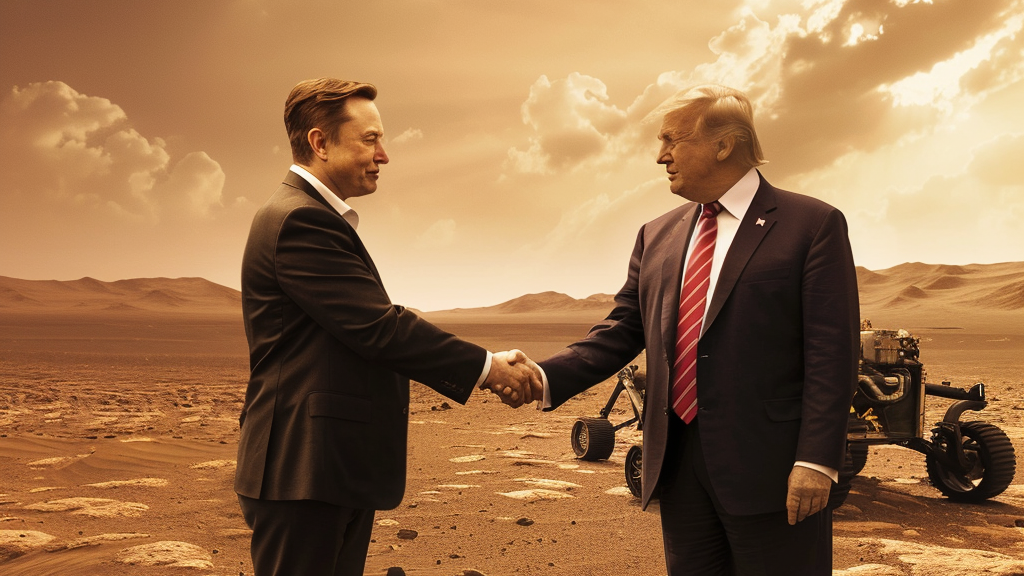In a bewildering twist that seems to defy logic and history, Elon Musk has pledged $45 million to support Donald Trump’s initiative aimed at reducing the number of electric cars on the road. This move has left both supporters and critics of Musk in a state of shock, as the Tesla CEO’s actions appear to contradict his long-standing advocacy for sustainable energy and electric vehicles.
At a recent press conference, Musk announced his surprising decision, stating, “While electric cars are great, it’s important to support a balanced automotive landscape. We’ve gone too far in one direction, and it’s time to restore some equilibrium.” Musk’s remarks were met with a mixture of confusion, disbelief, and, surprisingly, applause from Trump supporters who view this as a validation of their stance against electric cars.
Musk’s pledge aligns with Trump’s vocal opposition to electric vehicles, which he has often derided as impractical and part of an overblown environmental agenda. “Electric cars are just a fad,” Trump said in a recent interview. “We need real American power under the hood, and Elon sees that too.” The $45 million contribution is earmarked for initiatives that promote gasoline vehicles, including subsidies for new gas car purchases and campaigns to highlight the purported benefits of internal combustion engines over electric ones.
The reactions from the public and industry insiders have been predictably polarized. Environmentalists and Tesla enthusiasts are aghast, seeing this as a betrayal of Musk’s previous commitments to reducing carbon emissions and combating climate change. Social media erupted with hashtags like #ElonGoesGas and #TeslaTraitor trending as users expressed their dismay and confusion.
In contrast, traditional automakers and Trump loyalists have welcomed Musk’s decision with open arms. “Finally, someone with some sense,” tweeted one supporter. “Electric cars are overrated. Let’s get back to real engines and real power.” The oil and gas industry, predictably, is thrilled with the prospect of renewed interest in gasoline-powered vehicles, which could boost their sales and market presence.
Industry analysts are left speculating about Musk’s motives. Some believe this could be a strategic play to appeal to a broader market or to influence political discussions about automotive and energy policies. Others suggest that it might be a response to regulatory challenges and subsidies aimed at promoting electric vehicles, which Musk might see as limiting Tesla’s growth and profitability.
Meanwhile, Musk’s fellow tech entrepreneurs and environmental advocates have expressed a mix of concern and disappointment. Bill Gates, an advocate for clean energy, commented, “This is a step backward in our fight against climate change. We need more innovation in clean energy, not less.”
As the debate rages on, one thing is clear: Elon Musk’s $45 million contribution to reducing electric car numbers has added a new layer of complexity and irony to the ongoing discourse about the future of transportation. Whether this move will lead to a significant shift in the automotive landscape or simply serve as a provocative gesture remains to be seen.
In the midst of this controversy, the world watches closely to see if Musk’s latest gambit will have the intended impact or if it will backfire, driving even more people towards electric cars out of sheer defiance. As always, Musk has managed to keep himself at the center of public attention, proving once again that in the world of Elon Musk, the unexpected is the norm.

